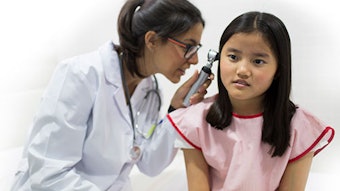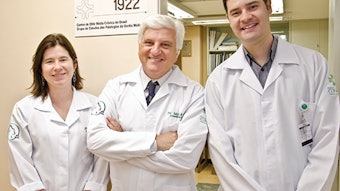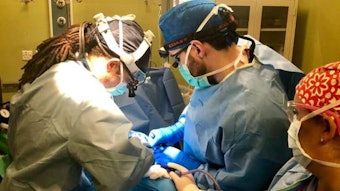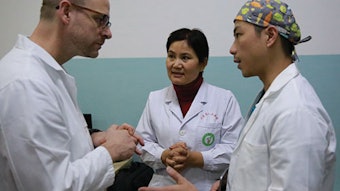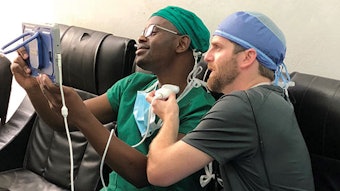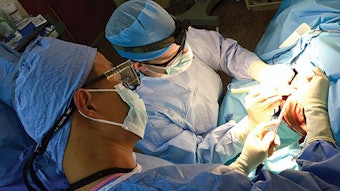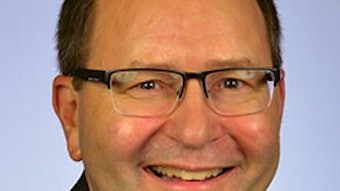Even a laryngosaurus can learn
Which one of today’s ideas will be tomorrow’s solutions? About 10 years ago, my home institution, the University of Washington Medical Center here in Seattle, served as the only U.S. site in the World Health Organization’s “Surgical Safety Saves Lives” pilot study of a standardized operating room checklist. I had been out of training for 10 years already and didn’t think much of this step other than that it was one more hassle.
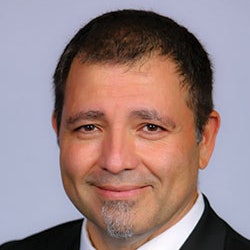 Albert L. Merati, MD
Albert L. Merati, MD
AAO-HNS/F Past President
What is next? Who will be the instigators, and who will be the early adopters of the next safety and quality idea? Perhaps it is you. As introduced by Everett Rogers, the concept of “diffusion of innovation” applies to much of what is around us as otolaryngologist-head and neck surgeons, whether it is referring to a major paradigm shift such as endoscopic sinus surgery or a way of organizing and accessing an unparalleled amount of clinical data in the form of our American Academy of Otolaryngology–Head and Neck Surgery Foundation registry: Reg-entSM ENT Clinical Data Registry.
As we look at the value equation in twenty-first century medicine, improving medical safety and reducing harm and injury will be critical. The AAO-HNS/F offers many opportunities to learn and to lead in this area. The Patient Safety and Quality Improvement Committee is perennially productive. Recent leaders include Drs. Rahul K. Shah, David W. Roberson, Emily F. Boss, and C.W. David Chang. When you are at the AAO-HNSF 2019 Annual Meeting & OTO Experience in New Orleans, LA, September 15-18, come join in on the meeting. It is open to all members. Some of the Annual Meeting’s most popular sessions are about patient safety, and registration will be opening on the AAO-HNSF site in as soon as six weeks.
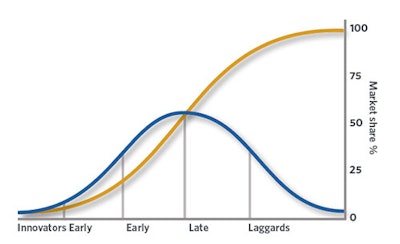 Depiction of Diffusion of Innovation theory.
Depiction of Diffusion of Innovation theory.The next major innovation in otolaryngology already is here: Reg-ent, the otolaryngologist-designed, otolaryngologist-driven, and otolaryngologist-owned clinical registry, allows for a universe of quality and safety initiatives beyond serving as our MIPS reporting instrument. As a participating otolaryngologist, you can access your own data extracted automatically through your electronic health record or, with the resources of our AAO-HNSF, work on a broader investigation of national trends and questions regarding sleep surgery, antibiotics for otitis, thyroidectomy, or any area in a vast array of data captured in Reg-ent.
Future quality and safety initiatives across medicine recognize cost—a key component in the value equation—but this will require us to open our minds to the innovation around us. Learn more about Reg-ent by talking to a colleague—any of the thousands of otolaryngologists already engaged in reporting—or by reaching out to the AAO-HNS at entnet.org/contact_us or 703-836-4444.
We all know what happened to the laryngosauruses.
